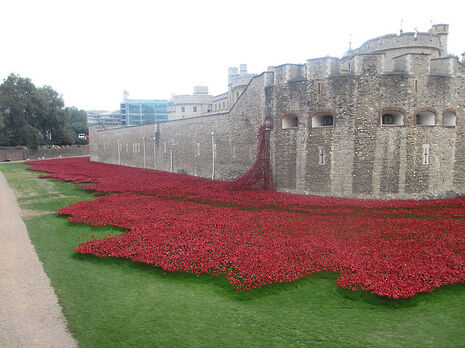Brexit?: The dangers of the ‘Spitfire mentality’
As Britain commemorates the hundredth anniversary of the First World War, Thomas Parsons-Munn asks how it can inform our decisions on EU membership

The years 2014 to 2018 mark the centenary of the First World War – an anniversary Britain is honouring with four years of remembrance ceremonies, TV documentaries, drama, theatre and events, all designed to commemorate the sacrifice of a generation in one of the most horrific conflicts in human history.
As well as being the hundredth anniversary of battles such as Passchendaele, Cambrai and the Nivelle Offensive, 2017 is also the year of Britain’s referendum on European Union membership. Surely, the conflict this country is currently remembering demonstrates, more clearly than any of the arguments put forward by our politicians to date, that Britain is a part of Europe and cannot ignore the Continent in an attempt to ‘go it alone’ – based as much on pugnacious national pride as any economic or political sense.
Surely, we must recognise that, in the uncertainty of the current international climate, nations must pull together in order to ensure collective strength and prosperity. Schism can lead only to mistrust and conflict.
The economic arguments for and against the European Union have been trotted out time and again – and no doubt they will have been exhausted before 2017 is over. The EU is the world’s largest single market; 3.5 million British jobs are linked – directly or indirectly – to the UK’s trade with other member states; companies often locate in the UK precisely because we are in the single market; the old tariff barriers, which hampered early twentieth-century international trade, have been removed…
The list could go on for ever – and no doubt the eurosceptics would be able to counter every item on it. Although this is clearly important, it is a discussion which all too often gets bogged down in complex economics – or is exploited, through the manipulation of data, to produce misleading statistics. A much better understanding of the EU – and why Britain cannot afford to leave it – can be gained if we only stop to consider why it was set up in the first place.
The European Union was a product of reconstruction at the end of the Second World War. Along with NATO and the UN, it was designed to ensure a level of international cooperation sufficient to prevent conflicts as brutal as the World Wars ever happening again.
Historians will probably debate the causes of these conflicts until the end of time itself, but the essential fact of the matter is that each was a product of the refusal – or inability – of the Great Powers of Europe to cooperate and communicate effectively.
In each case, the lack of a common market, open borders and easy political discussion ensured a breakdown of international trust and the rise of extremist and nationalist politics, and propelled Europe to war. Moreover, in each case – particularly World War Two – Britain’s attempts to ‘go it alone’, to assert its power and independence from other European countries – principally France – served only to escalate and aggravate the situation.
Once again, Europe is faced with an economic crisis. Extremist politics are on the march, and Vladimir Putin seems intent on reawakening the age-old problem of Eastern Europe and the Balkans. Can Britain really afford to turn its back on the Continent now?
We may be an ‘island nation’, but this is not the time of the Armada. Britain is far from the impregnable island fortress it once was. Politicians can and will debate the extent to which Britain needs Europe until they are blue in the face. Yet the real question here is not about us ‘needing’ Europe – it is about the nations of Europe needing each other to ensure common stability, prosperity and, above all, peace.
The VE Day celebrations earlier this month should surely have shown us that we are necessarily implicated in events on the Continent. Although these celebrations, with their emphasis on the Battle of Britain, perpetuate the myth of ‘our finest hour’, we should never forget that we could not have won either World War alone.
It is time to wake up and realise what is at stake over Europe. We must drop the ‘Spitfire mentality’ of our splendid and heroic isolation, and embrace our involvement in continental affairs, working towards the common goal of a better, more prosperous future. If we do not – if we break the Union and step outside of European politics – not only do we isolate ourselves, but we rupture the Continent, and create a schism in international politics.
Over the coming years we will doubtless see endless re-runs of old First World War footage, and numerous reconstructions. Maybe we should look at that footage, and the scenes from the Ukraine, and ask ourselves, what will it take this time before we see sense?
 News / Report suggests Cambridge the hardest place to get a first in the country23 January 2026
News / Report suggests Cambridge the hardest place to get a first in the country23 January 2026 Comment / Cambridge has already become complacent on class23 January 2026
Comment / Cambridge has already become complacent on class23 January 2026 News / Students condemn ‘insidious’ Israel trip23 January 2026
News / Students condemn ‘insidious’ Israel trip23 January 2026 News / Cambridge ranks in the top ten for every subject area in 202623 January 2026
News / Cambridge ranks in the top ten for every subject area in 202623 January 2026 Comment / Gardies and Harvey’s are not the first, and they won’t be the last23 January 2026
Comment / Gardies and Harvey’s are not the first, and they won’t be the last23 January 2026









